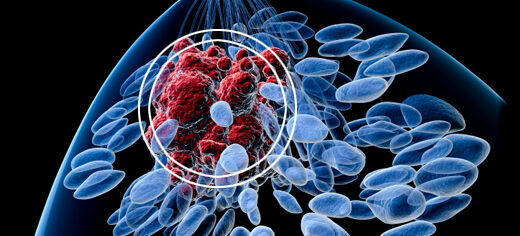
University of Leeds academics have leant their expertise to an analysis identifying the ten critical gaps that exist in breast cancer research, which, if not urgently addressed, could see the loss of about 185,000 lives by 2030.
To coincide with the launch of Breast Cancer Awareness Month this October, University of Leeds professors Valerie Speirs and Galina Velikova helped identify priority issues with the potential to accelerate breast cancer research and its clinical management, for leading charity Breast Cancer Campaign.
Professor Speirs said: "This important project is the most comprehensive of its type. If the gaps identified by The Breast Cancer Campaign Gap Analysis 2013 can be filled, it's great to think that there is a real prospect of looking forward to a time when breast cancer can be prevented, overcome or outlived.”
The University of Leeds specialists joined a panel of more than 100 internationally recognised experts to participate in the analysis, entitled Critical research gaps and translational priorities for the successful prevention and treatment of breast cancer and published in the international open access journal, Breast Cancer Research.
It is the most comprehensive review of breast cancer research ever carried out and provides vital information about what we need to know and what we need to do to overcome – prevent, cure and outlive – breast cancer by 2050.
The top ten gaps have been identified and prioritised in key areas, such as genetics, prevention, diagnosis, treatment and support, which, if overcome, will have a significant impact on the lives of those affected. The critical gaps are:
- Understanding how genetic changes lead to the development of breast cancer.
- Identifying sustainable lifestyle changes, such as diet and exercise, which can reduce a woman's risk of breast cancer, as well as improving risk-reducing drugs (chemoprevention) for women at increased risk of the disease.
- Targeting breast screening to those who will most benefit, by finding accurate and practical ways to calculate someone's individual risk of developing breast cancer.
- Understanding the molecules and processes that encourage different types of breast cancer to grow, and those that allow breast tumours to become resistant to treatments and spread throughout the body.
- Understanding how cancer cells with different characteristics form within a tumour, why cancer cells sometimes go into hibernation, and why some breast cancers are resistant to treatment from the outset whereas others become resistant over time.
- Developing tests to predict how well patients will respond to chemotherapy or radiotherapy.
- Understanding how to use combinations of drugs and other therapies to improve and tailor treatment for each individual.
- Developing better ways of using imaging to diagnose breast cancer, track how the disease responds to treatments and monitor its spread throughout the body.
- Providing effective and practical support to help people deal with the emotional impact of breast cancer and the side effects of treatment.
- Collecting tumour tissue and blood samples donated by breast cancer patients at different stages of their disease, alongside detailed anonymous information about each patient, to help study the disease and develop new treatments.
In addition, the analysis identifies five key strategic solutions to these gaps to help treat and support those affected by breast cancer and ultimately help more women to prevent and overcome the disease. These are: reversing the decline in resources targeted towards breast cancer research; developing an infrastructure for research; finding better ways of studying breast cancer; collaboration between researchers in different scientific fields and improving clinical trial design.
Breast cancer in the most common cancer in the UK, with around 50,000 women diagnosed each year. It is the second biggest cause of death from cancer in women, with around 12,000 losing their lives from the disease.
Baroness Delyth Morgan, Chief Executive, Breast Cancer Campaign said: "If we don't act now, by 2030 more than 1.2 million women could be living with or after a breast cancer diagnosis and around 185,000 lives could have been lost to breast cancer. We want future mothers, daughters and wives to have their breast cancer prevented, cured or for them to outlive the disease, and hope that together we can achieve this by 2050.”
Further information
Professor Valerie Speirs is available for interview. Please contact Ben Jones, Press Officer, on 0113 34 38059; or email B.P.Jones@leeds.ac.uk